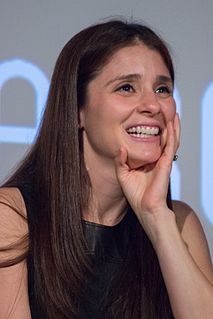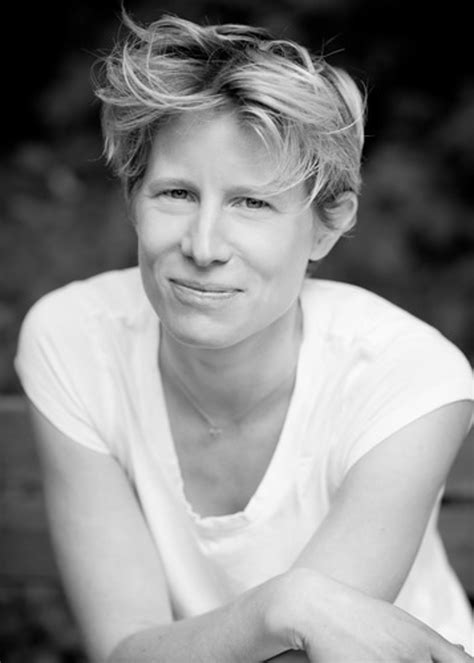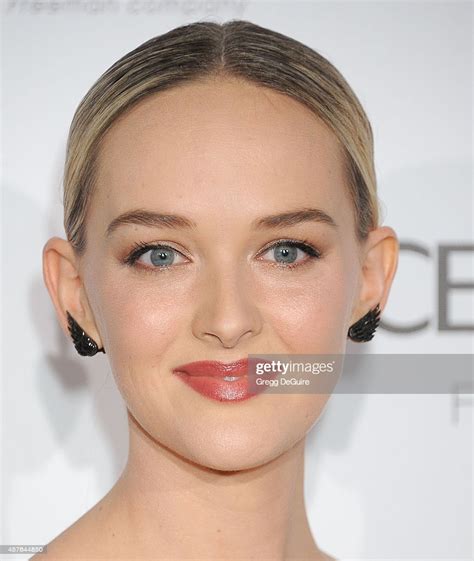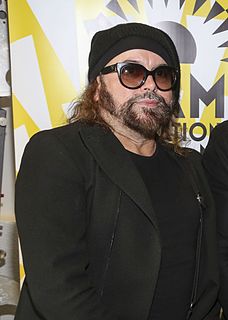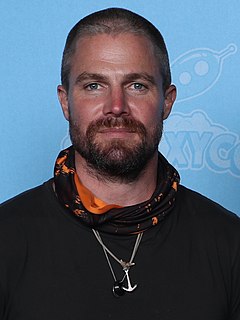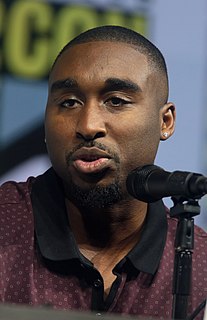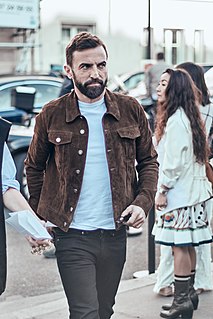A Quote by Shiri Appleby
In terms of watching other directors, it's more like I go on set now, and I'm prepared, as an actor, and ready to give them everything, but at the same time, you observe how everybody else does it because there's always something to learn.
Related Quotes
It takes such a particular amazing and extraordinary type of personality to become an actor. I love them. You can't do my job without them. I've worked with a lot of film actors and most of them are so, so prepared in their approach because they are used to turning up ready to shoot: you have to have your performance, you have to have your lines, you have to have everything pretty much decided and ready to go whenever everyone else is ready.
The amount of preparation I saw from someone like [David] Fincher, and how aware he is of everybody else's job on the set, and how much respect he has for every aspect of the film, and every aspect of the frame - that's the type of actor I am now; it's not the type of actor I was then. But without understanding his process, and then coming to learn it later on, I would never be the actor I am now.
The biggest challenge for me, as an actor, is to be informed, prepared and focused, at the same time. I had to just keep on working, prepping, reading and imagining, all the way through, but the biggest challenge is always to let go of all that and just be open to others. That's what we do, as actor. We play with each other and we stimulate each other, and we have to be prepared to be stimulated by the other. That's always my big challenge.
The positive thing about collaborating is that I cannot get distracted by coding work, because I cannot waste the other collaborator's time in the same way as I can my own. And it's always good to learn how the other person works, learn about techniques, learn social things like: how do you communicate with another person? The music I make with other people I'm much more confident about, I'm a little bit less judgemental of the outcome than with my own stuff because I know it's not only me, it's a more outside of me. Sometimes I even like them better than my own tracks.
A word does not say anything
And at the same time it hides everything
Just as the wind that hides the water
Like the flowers that mud hides.
A glance does not say anything
And at the same time it says everything
Like rain on your face Or an old treasure map
A truth does not say anything
And at the same time it hides everything
Like a bonfire that does not go out
Like a stone that is born dust.
If one day you need me, I will be nothing
And at the same time I will be everything
Because in your eyes are my wings
And the shore where I drown.
I don't want to be like the actor who rehearses everything in the bathroom, then comes to the set and carries on completely uninterrupted while the other actors tiptoe away. I'm so dependent on reacting to the other actors on the set, and to the director. I'm very responsive. I react. And I treasure the energy that reaction gives. I feed off that and work off that. I don't like to be too prepared, no. However we define too prepared, if I feel it's getting that way, then I'll back off. My line-learning is very special. I like to learn the dialogue of the whole film before I arrive.
I'd like to work more as a director. It's distracting being an actor, because - there's a lot of reasons. You find out you're going to work about six months before you start shooting, and then there's prep and there's post afterward, and there's stuff to do, and then suddenly you've gone a year without directing. There's a part of me that has to not be tempted by that in order to commit more to the directing. Honestly, the big reason for me to act is to observe other directors and learn from them. That seems to be the biggest draw.
The pace is different on a film set. It's slightly slower, allowing for a little more wiggle room. Sometimes there is a bit more room to explore and work on the floor. On a TV set, you really have to be ultra-prepared and ready to deliver because time is so tight. Not that you don't have to be prepared for film.
You always have to appeal to your audience. You always have to consider how well your project will do in terms of admissions. I abandoned many stories because of that. But I don't get too down about it. It's something I accepted from the time I decided to work in films. I could always do something else if I got sick of it, like draw manga, or make my own films. I found it pointless sitting in my house not working, though I'd like to go on extended vacations from time to time.
I would like to, in some capacity, observe how Tom Cruise goes about his business when it comes to making a movie and how he behaves on set and how he interacts with the crew because from everything that I've heard, it is the template for professionalism and just the way to conduct yourself as an actor.
I always feel like I learn more from directors that are new, and I also am able to understand how much I really do know about filmmaking when you work with directors that maybe don't have as much experience, so you're able to sort of take the reins. I know how to do these movies, I've done so many of them and have learned from new directors who are usually willing to try new things and are more open to allowing someone like me to kind of come in and just do what I know how to do.
For me, I go somewhere for three days, and then I come back and I want to change everything, and so it's a fight with everybody. I'm transforming and convincing. It's more than designing. It's shaking people and trying to give them direction. I'm a bit of a control freak. This is a problem as I get older, and it's something I should work on. I should be more confident - learn to trust people and give them freedom and delegate.
